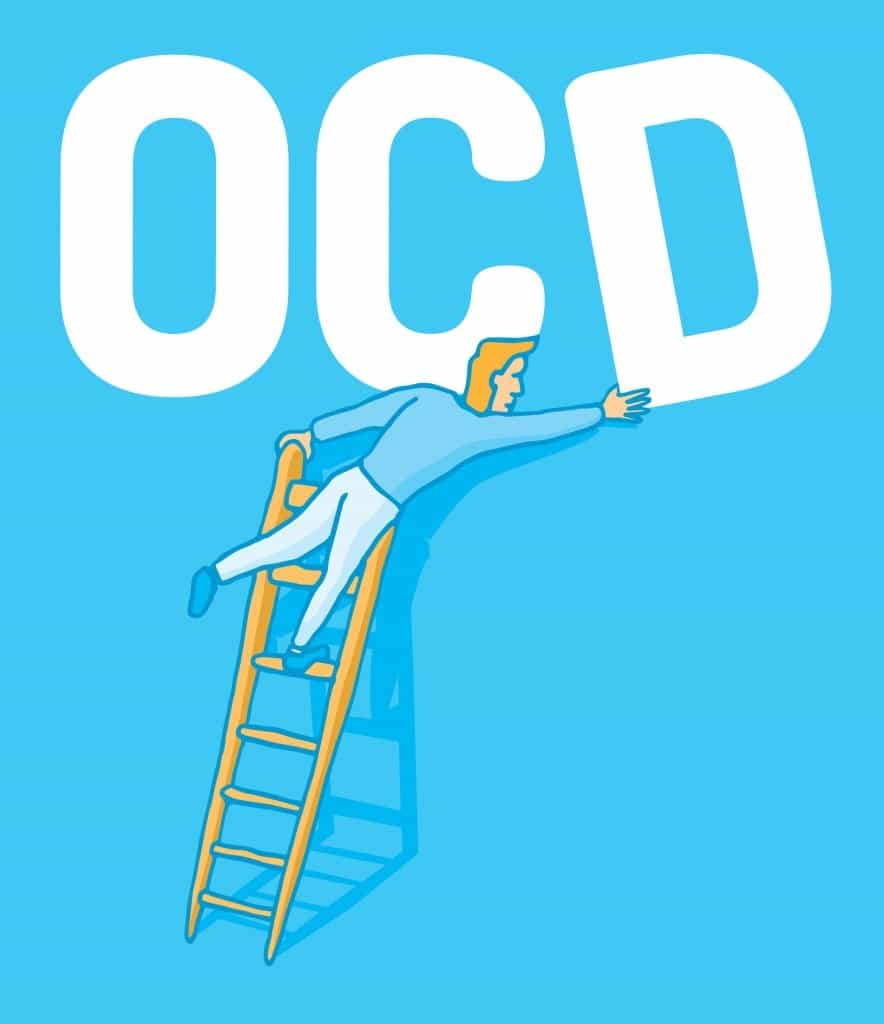What is Obsessive Compulsive Disorder (OCD)?

OCD is an anxiety disorder which causes intrusive thoughts, images or impulses, making a person feel anxious or scared, compelling them to perform certain behaviors in an attempt to find relief from their intense anxiety or fear. OCD causes the brain to get stuck on a particular thought or urge. People with OCD often realize that their thoughts or behaviors are unfounded but they feel uncontrollable and powerless to stop them.
What are symptoms?
Many people may find they have a few of the following obsessions or compulsive behaviors but people with OCD experience these symptoms in a way that is so severe that it interferes with their ability to socialize, go to school or work, and participate in family life, disrupting their ability to function on a day-to-day basis. Those with OCD perform their compulsions even though it interferes with daily life and performing the rituals can feel distressing. Obsessions become disturbing and distracting in everyday life. Symptoms are experienced for more than an hour everyday and can wax and wane over time.
Obsessions:
- Losing control: fear of acting on an impulse to hurt others or yourself
- Unwanted sexual thoughts: thoughts of unpleasurable sexual acts
- Religious obsessions: thoughts that are prohibited due to religious beliefs
- Contamination: germs, disease, dirt, chemicals, etc.
- Harm: fear of unintentionally causing harm to others
- Perfectionism: being concerned about evenness, exactness, fear of forgetting, fear of losing things, being unable to decide if you should discard something
- Superstitions: ideas about numbers and colors having good, safe, right qualities while others have bad, unsafe, or unlucky qualities
Compulsions (rituals):
- Checking: repeatedly checking things (that the door is locked, that the oven is off)
- Washing and cleaning: washing, showering, grooming, or cleaning excessively
- Mental compulsions: mental acts performed to prevent harm or terrible consequences (praying, reviewing, counting, cancelling and undoing)
- Repeating: rereading, rewriting, repeating actions, repeating body movements
- Arranging: creating order
- Hoarding: refusing to throw or give away things with no value or function to you
What causes OCD?
OCD runs in families and genes likely play a role in the development of the disorder, but genes seem to be only partly responsible for causing the disorder. Researchers are finding that those with OCD show problems with communication between the front part of the brain and deeper structures where serotonin is the chemical messenger. If you, your parent, or a sibling have OCD, there’s roughly a 25% chance that another immediate family member will have or develop OCD. Most people are diagnosed by age 19, and is currently affecting about 2.2 million adults in America.
What can be done to treat OCD?
OCD cannot be cured, but can be treated effectively. Cognitive Behavioral Therapy (CBT) helps a person find different ways of thinking, behaving, and reacting to situations to help them feel less anxious or fearful. Antidepressants (SSRIs) are sometimes used in conjunction with therapy. In some people, the brain circuits involved in OCD appear and function more normally with serotonin medicines or cognitive behavioral therapy. Consensus among experts finds 13-20 weekly sessions is a standard length of treatment.
- Exposure and Response Prevention: involves continual exposure to the source of your obsession while restricting your ability to perform your usual compulsive behavior. This builds self-mastery and allows your mind and body to realize compulsive behaviors are not the only way to relieve anxiety. This technique has the best evidence support.
- Cognitive Therapy: focuses on the catastrophic and exaggerated thoughts you have, and teaches you healthy and positive ways to deal with, and respond to, obsessive thoughts.
- Family therapy: OCD can cause problems in family life, family therapy helps facilitate understanding and can empower family members to help their loved one suffering from OCD. Family therapy can reduce inter-family tensions that may cause or exacerbate the patient’s OCD symptoms and help to stop family members from encouraging or participating in a family member’s OCD compulsions.




